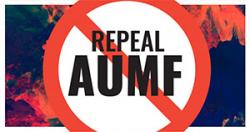We're taking on ICE in Louisiana and Mississippi for overcrowded and unhealthy conditions in detention centers
[caption align="right"] [/caption]
[/caption]“We are washing our hands with shampoo because that is all that we have,” said Rolando Alex Colon, who is in Immigration and Customs Enforcement (ICE) detention in Louisiana. “The facility’s response to the coronavirus is to put signs up that tell us to wash our hands. They also told us that if we are immunocompromised to ‘be careful,’ [but] that does us no good. I do understand what social distancing is, however there is no space to do so in Catahoula. There are about 100 people in one large room.”
Last week, we filed two emergency petitions on behalf of medically vulnerable immigrants currently held in ICE detention centers in Louisiana and Mississippi. The first was filed Tuesday for the release of 16 people in six ICE detention facilities in Louisiana. In the second, filed Friday, we submitted an emergency petition for release of seven people currently held by ICE in Natchez, Mississippi. In both cases, we cite the severe risk of these medically vulnerable individuals contracting coronavirus and developing life-threatening COVID-19 symptoms.
ICE facilities are notoriously overcrowded and unhealthy and do not have adequate medical facilities or expertise. The complaints and accompanying emergency motions for release filed last week warn that the near-certainty of coronavirus outbreaks in these already unsafe facilities renders the continued detention of these individuals a potential death sentence for a civil immigration violation.
We continue to support our partners organizing on the ground and their calls to release people from ICE detention. On Friday, we joined ISLA Immigration Services and Legal Advocacy, the New Orleans Workers Center for Racial Justice, and more than twenty other organizations for a Facebook Live event and phone-Twitter-Facebook “zap” action calling elected officials in Louisiana to #FreeThemAll. Watch the video, which includes remarks by Advocacy Director Nadia Ben-Youssef, and learn more about what you can do to support these demands.
Read about the two filings on our website. The Louisiana filing is here and Mississippi here. If you haven’t already, please read an op-ed written by our client Tatalu Helen Dada in Common Dreams, and consider signing the Change.org petition launched by the children of our client Dr. Sirous Asgari.
Racial Justice Has No Borders: Sign the pledge to repeal the AUMF!
[caption align="right"] [/caption]
[/caption]Thank you to all who were able to join us and other members of the Racial Justice Has No Borders coalition for our town hall. The event, which was hosted by Marc Lamont Hill and featured opening remarks from Rep. Ilhan Omar, included powerful words from movement leaders seeking to re-center the conversation about U.S. wars and militarization on the needs and leadership of those most impacted.
If you missed any of it, watch the town hall on our Facebook page and then sign the pledge to demand the repeal of the Authorization for Use of Military Force (AUMF)!
The demand of the Racial Justice Has No Borders coalition's inaugural campaign is the repeal of the 2001 and 2002 AUMFs, which have formed the pillar of escalated U.S. military intervention around the world under the banner of the War on Terror.
Will you join us in calling to repeal the 2001 and 2002 AUMFs and end endless wars? Sign and share the pledge.
We commend Attorney General James for filing a motin to lift the public charge rule amid COVID-19
Last week, New York State Attorney General Letitia James filed a motion in the U.S. Supreme Court on behalf of three states and New York City, seeking to temporarily lift or modify its stay of an injunction blocking the public charge rule until the end of the COVID-19 pandemic.
Amid this global health crisis, it is critical that everyone, regardless of immigration status, have full access to healthcare and the public benefits for which they are eligible. By making people afraid to access services and benefits like healthcare and food assistance, the public charge rule is increasing the suffering of immigrant communities, even as their members, many of whom are essential workers, are among the hardest hit by the illness.
As long as the public charge rule remains in effect, immigrants and their families, including those who are U.S. citizens, will be deterred from seeking testing or treatment for COVID-19 and other types of healthcare and vital benefits. This impedes efforts to thwart the spread of the coronavirus and puts immigrants and non-immigrants alike at risk.
Read more on our website.
Online event: Racial Justice, Restoration, and Inclusion: Human Rights Principles and Local Practice
This year's annual Human Rights in the U.S. Symposium/CLE will explore the relevance of human rights norms in efforts to advance racial justice and address historical and tongoing racism, discrimination, and intolerance. The day will highlight ways to ensure dignity, equality, and accountability in advocacy and decision-making. Advocacy Director Nadia Ben-Youssef will moderate the opening panel on human rights strategies that shape effective remedies and reparations for racial justice, with panelists drawing from international, national, and local examples.
Register for the symposium on Columbia’s website.

